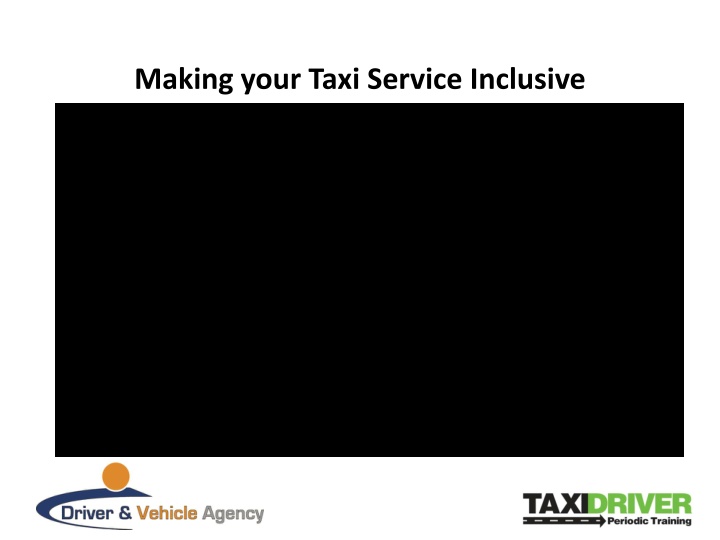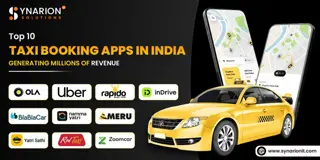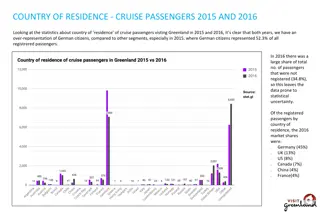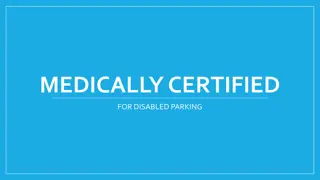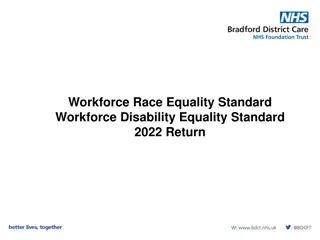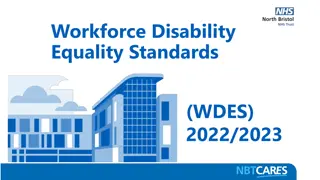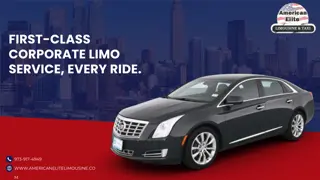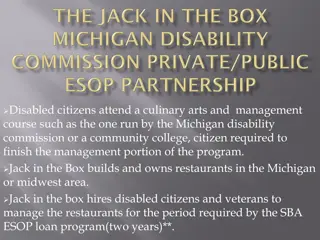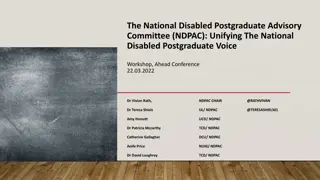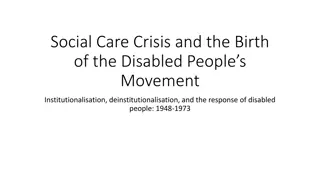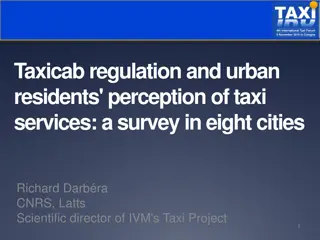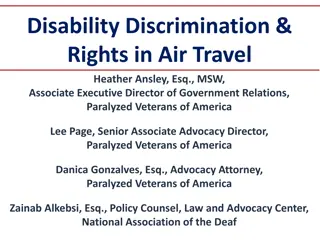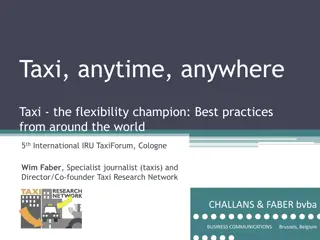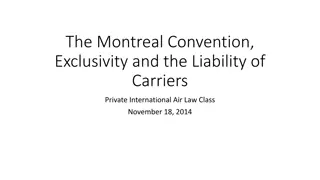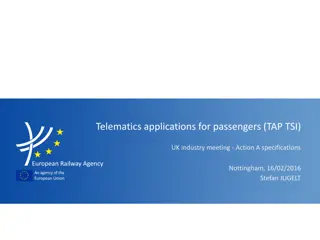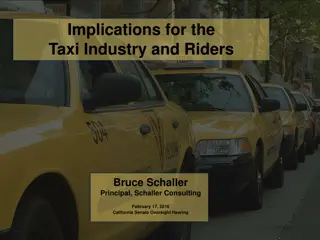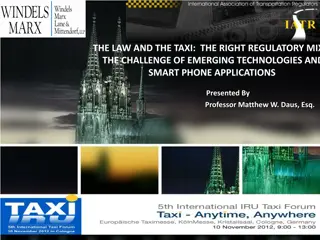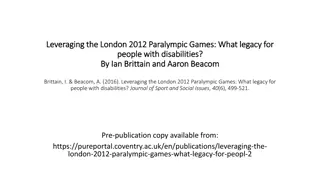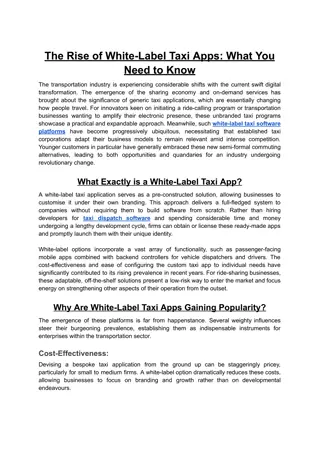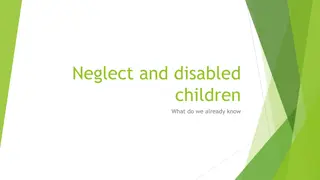Ensuring Inclusive Taxi Services for Disabled Passengers
This course aims to address the barriers faced by disabled individuals when using taxi services. It covers topics such as understanding disabled people, promoting equal treatment, and encouraging inclusive behaviors among drivers. With over 20% of the population in Northern Ireland being disabled, it's crucial to provide a service that accommodates their needs and preferences. Drivers are advised to avoid assumptions, communicate with passengers, and offer appropriate assistance to create a more accessible and welcoming environment for all travelers.
Download Presentation

Please find below an Image/Link to download the presentation.
The content on the website is provided AS IS for your information and personal use only. It may not be sold, licensed, or shared on other websites without obtaining consent from the author.If you encounter any issues during the download, it is possible that the publisher has removed the file from their server.
You are allowed to download the files provided on this website for personal or commercial use, subject to the condition that they are used lawfully. All files are the property of their respective owners.
The content on the website is provided AS IS for your information and personal use only. It may not be sold, licensed, or shared on other websites without obtaining consent from the author.
E N D
Presentation Transcript
Course Aim This course is designed to give an overview of the barriers faced by disabled people using taxis and promoting ways drivers can reduce these barriers.
Course Objectives Raise an understanding of who disabled people are Promote fair and equal treatment of disabled people Encourage new driver behaviours to promote a more inclusive service
Who are Disabled people? Disabled people make up over 20% of the population in NI. People experience a range of different impairments Many people have more than one impairment Some disabled people have hidden impairments which will not be obvious to drivers
An Inclusive Taxi Service Disabled people have the right to the same service as other passengers Treat people as individuals and don t make assumptions based on passengers disability Talk to and be guided by passengers about what makes a inclusive service Offering and providing appropriate assistance can make journeys easier
Attitudinal Barriers Difficulties can arise when drivers make assumptions, are fearful of, ignore or misunderstand disabled people A positive driver attitude can make journeys much easier Disabled people are individuals and will have their own preferences when travelling by taxi
Attitudinal Barriers: Tips Tips for drivers: Be confident Offer assistance but don t assume all passengers will want or need this Be patient allowing extra time for journeys Remember be guided by the passenger if in doubt ask!
Physical Barriers The design of taxis and the wider environment can present physical barriers for disabled people It is important drivers know how to use any equipment that can aid access eg. ramps, steps, tie downs etc. Offering appropriate assistance can help reduce physical barriers
Physical Barriers: Tips Tips for drivers: Different passengers require different vehicles Safety is important - know how to use any equipment properly Be prepared to provide assistance to and from and in and out of your vehicle Warn passengers about any potential hazards during a journey
Communication Barriers Poor communication can be a barrier It is important to talk to and be guided by your passengers Sometimes drivers need to have patience to understand what some passengers require It is important that information given by passengers when booking is passed to the driver
Communication Barriers: Tips Tips for drivers: Talk to and be guided by your passenger throughout the journey If your passenger has difficulty communicating be patient carrying a pen and paper might help Shouting at a passenger with hearing loss will not help communication Keep your passenger informed of any issues during the journey
Feedback from Passengers Be aware of who disabled people are Talk to and listen to your passengers Don t make assumptions Be pro-active and offer assistance
Points to Remember Attitude Treat your passengers as individuals and don t make assumptions Communication Talk to and be guided by your passengers Assistance Offer and provide appropriate assistance
Special thanks to... Disabled People s Voices NI Northwest Forum Of People With Disabilities
